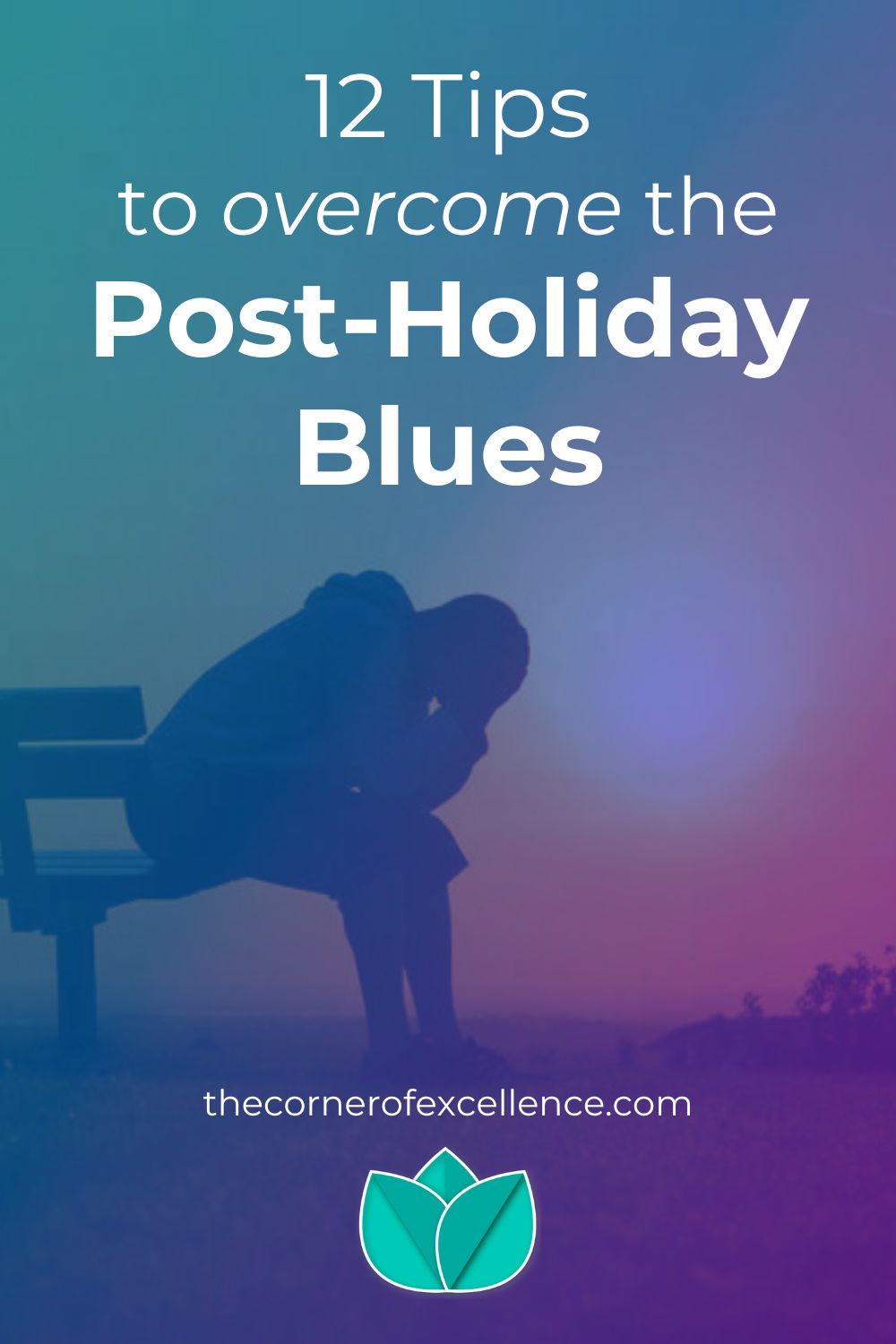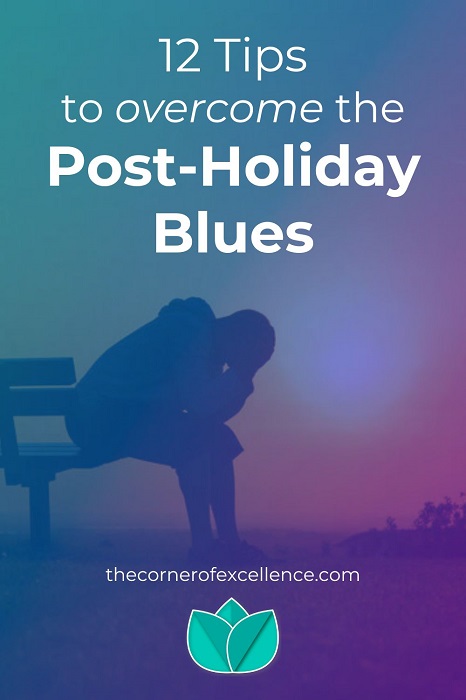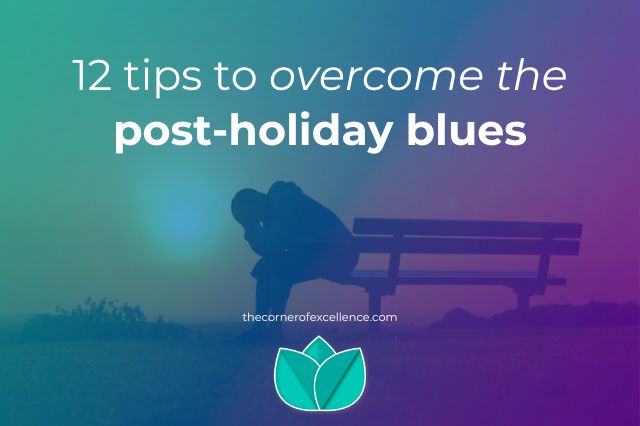
Have you ever suffered from the post-holiday blues or post-vacation blues? When summer is drawing to an end, the media comment about the post-vacation or post-holiday blues, syndrome, depression or stress. But they do not agree on the statistics about how many people are affected.
Let’s look into what this syndrome is about, who is more prone to it and some tips to overcome it.
What is the post-holiday blues?
The post-holiday syndrome or stress can be suffered when encountering after the holidays the return to the routine of work, school, domestic and family obligations. When a person fails in the process of adaptation, he or she can feel a elevated level of stress as well as physical and psychic discomfort. However, it is usually a passing syndrome during the first week of work.
Symptoms of the post-holiday blues
The physical symptoms can be tiredness, fatigue, a sense of sleep deprivation, lack of focus or appetite and even muscular pains.
Regarding psychic symptoms you may feel restless, a lack of interest, listless, irritable or blue.
Who is prone to suffer from the post-holiday blues?
People who do not like their job or kids who do not enjoy school are more likely to suffer from post-holiday stress. If you know you will encounter for example a bad atmosphere, tasks that bore you or you do not like, there are more possibilities of slipping into post-holiday stress or depression.
How to prevent or fight the post-holiday blues?
1. Be resilient and positive
If you like your job, you will less likely suffer from the post-holiday syndrome. But if you do not like it and it seems a burden to you, it can be more difficult to get your groove on. In this case, be positive and think what a great time you had on holidays. Think that having a job has allowed you to take them. Resilience helps us overcome adverse situations. And positive thinking helps us not to see everything black and find something good in every situation.
Besides, although we sometimes might think how great eternal holidays would be, when it comes down to it, would you really enjoy them the same? O might it be that leaving the routine behind is what makes us enjoy holiday as much?
2. Do not delay the return from holidays until the last moment
If you have a tendency to suffer from the post-holiday blues, return home one or two days before your holidays end. This will allow you to get back into the routine more softly, have time to unpack your luggage and leave home organised.
3. Return gradually to the routine
If you have been getting up and going to bed late, start some days prior to your return to work to normalise your sleeping pattern. Get up early and go to bed at the hour you would when working. If you like to take naps, reduce them to no more than half an hour. Or organise activities so as not to nap around noon.
Get back to the routine as well with the mealtimes.
4. Tackle work progressively and get organised
Back to your workplace, take your time to review the issues left unresolved before your leave. Check your agenda to see what expects you in the next days and weeks. If you did not prepare it before leaving on holidays, write down all meetings and commitments which need preparation. Review and sort your emails. Eliminate spam. Take notes of the tasks. Then reply to the emails that do not require more than one or two minutes.
So as not to feel overwhelmed by work left undone before you went on holidays and work accumulated during your absence, it is important that you prioritise the tasks and organise a work agenda. Remember that you do not have to get everything done on the first day.
Then choose the task you want to start with, being ideally the easiest or most gratifying.
Also take time to greet your work colleagues and tell each other about your holidays. Or arrange to meet for lunch to get up to date. Same as when returning to school, seeing your colleagues again will lift your spirits. But do not allow yourself to waste hours and hours with chitchat.
5. Be assertive and set limits
Do not let yourself get bombarded with urgencies from minute one. Learn to draw the line and tell your colleague assertively that you are settling in. Ideally tell him/her to send you an e-mail with the request so you may reply at your own pace. If not, ask them directly for when they really need what they are asking for and put it onto your task list. Avoid the temptation of doing the task immediately, in order to get rid of it, if it is not indispensable. Also, assess whether you are the appropriate person for the task or your colleague should ask somebody else. In that case, say that you cannot help and indicate the right person.
6. Do not take work home
Although I recommend always avoiding it, especially in the first days after the holidays, do not take work home. Nowadays in many jobs we usually have more tasks than time available. So accept it and prioritise what you work on in order for the day to be productive. Then you will feel you have made the most out of it.
Do not take work home in your mind either, i.e. do not continue brooding over things when you leave work. Before leaving the office, write down all pending things and issues that are on your mind to clear your head. Tomorrow is a new day.
You may find more tips on this regard in the post “5 simple tricks to disconnect from work”.
7. Stop recurring negative thoughts
Our mind is prone to brood over things that have happened or could happen. If you catch yourself brooding over negative, irrational or even depressing thoughts like “I want to continue on holidays”, “I would be so much better at the beach”, “I hate my job”, “My boss is getting on my nerves” and so on and so forth, stop them. They will absorb you into a spiral of discomfort, lack of control and anxiety. Become aware that those are unrealistic and somewhat extreme thoughts and that you will not achieve anything positive from this type of internal dialogue.
8. Practice relaxation
Take regular breaks and do relaxation exercises. Breath calmly during a couple of minutes. Or maybe take a short walk concentrating on the sensation of your feet touching the ground. This will help you connect body and mind, focusing your thoughts on the present moment, which will reduce stress and anxiety.
9. Organise fun activities
In order to make the most out of your free time, and the same as you do with work projects and tasks, organise fun activities. Look for plans in your town that will help you disconnect from the routine. Get into touch with family and friends you have not seen during the holidays. Both the activities in themselves as the fact of starting to organise and prepare them will relax you and lift your spirits.
10. Do something for your health
If you are sporty, you will have continued with a certain routine during the holidays. Those of us who are not that into sports, might not have done much more than taking a walk and splashing about the water. But remember that physical exercise releases endorphins which produce a feeling of well-being and even happiness.
In case the post-holiday syndrome has spoiled your appetite, physical exercise will also be beneficial. Taking care of our body with exercise also seems to lead to healthier eating habits.
11. Be patient and nice to yourself
Remember that the post-holiday syndrome usually passes. It is a question of getting back into the routine and having a resilient and positive attitude. So do not resent yourself if you feel blue in the first days.
If the symptoms do not disappear after a few days, consider whether the stress could have other more profound causes and go to a specialist for advice.
12. Divide the days off
As a last advice, I recommend that, insofar as possible, you distribute your holidays over the year instead of taking everything in summer. Having many weeks in a row off may lead to you having a harder time returning to the work routine. Whereas taking off a longer weekend or week now and then throughout the year, will give you more periods of disconnection. Also, you will feel thrilled thinking about the days off awaiting you and organising fun getaways more often.

Sharing is caring!




